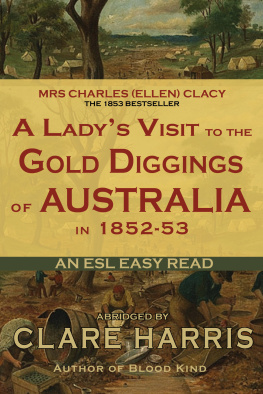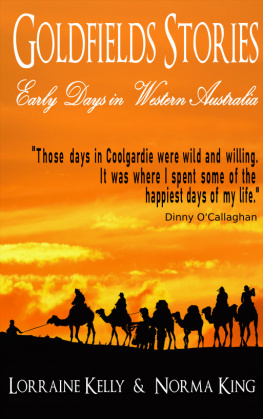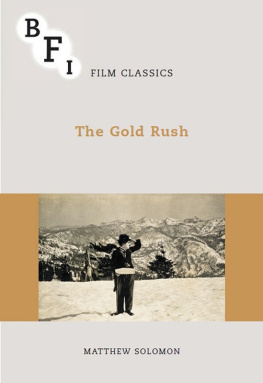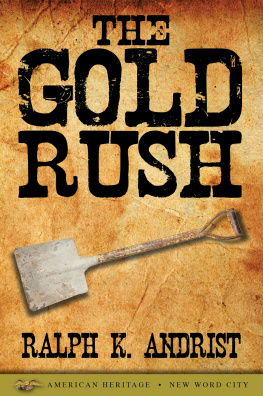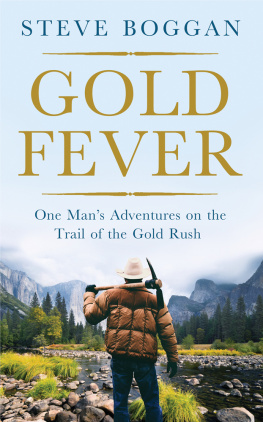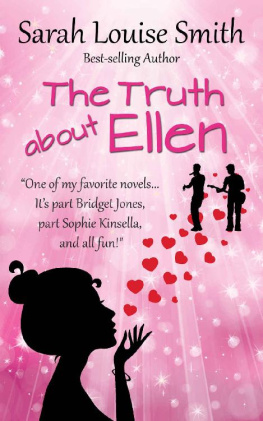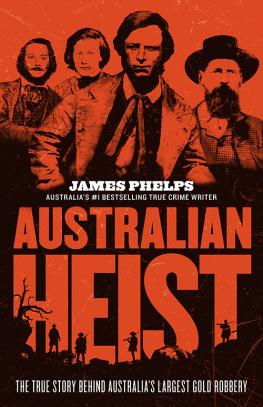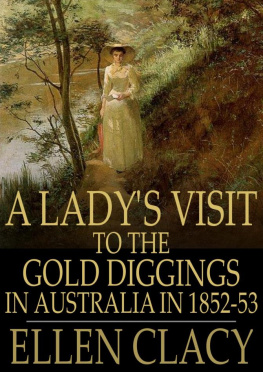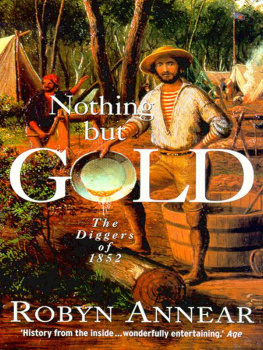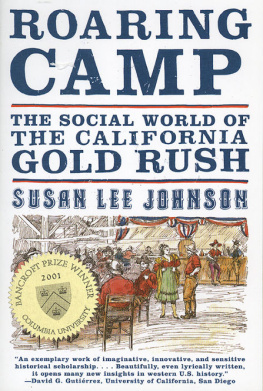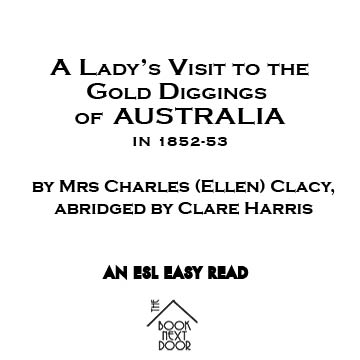
COPYRIGHT INFORMATION
A Ladys Visit to the Gold Diggings of Australia in 1852-53:
An ESL Easy Read
by Mrs Charles (Ellen) Clacy, abridged by Clare Harris
Smashwords Edition ISBN: 978 1 922191 11 3
Edited by Sally Odgers
Text of this version copyright 2014 by Clare Harris
Published by The Book Next Door
Cover and layout copyright 2014 by The Book Next Door
Cover art from the painting An Australian Gold Diggings, 1855, by Edwin Stockqueler, now in the public domain (Wikimedia Commons).
This book is licensed for your personal enjoyment only. All rights reserved. This is an abridged, easy-read version of the original 1853 book by Mrs Charles (Ellen) Clacy, now in the public domain. This abridged version, or parts of this version, may not be reproduced in any form without permission.
INTRODUCTION
Ellen Clacy was 20 years old when she and her brother travelled from England to the Australian goldfields in 1852. This was at the start of the gold rush, when thousands of people from around the world were arriving at the gold diggings. In just a few years, from 1851 to 1854, the population of the colony of Victoria jumped from 80,000 to 300,000.
Ellen did not stay in Australia. She went back to England, and her book about her travels to the goldfields and her adventures there was published in 1853. It became a huge success.
This is a short, Easy-Read adaptation of Ellen Clacys best-selling book. It uses Australian/British English spelling.
BEFORE YOU READ
Things to know about language:
In this book, The Colonies refers to Australia. At that time it was not one independent country, but was made up of six British colonies.
A gold-washing cradle was like a large wooden box with two sieves, used to separate gold from dirt and water.
A digger was someone who was digging for gold. (Much later, during the 1914-18 World War, this word was used to mean an Australian or New Zealand soldier, though now it just refers to an Australian soldier.)
Bushrangers were robbers who lived in the bush out of town. They were a serious danger to the diggers.
This is an easy-read version of Ellens story, but it uses a lot of Ellens own language. Some of this is a little old-fashioned. Ellen also repeated non-standard English when she heard people saying things like we cant cook nothink or I makes them too. This language is shown with an asterisk * next to it. You can check the modern Standard Australian English at the end of the book.
In 1853, when Ellen married Mr Charles Clacy, it was the custom to call her Mrs Charles Clacy. So the book is by Mrs Charles (Ellen) Clacy.
Things to know about measurements:
Distance is described in miles. (1 mile = approx. 1.6 kilometres.)
Weight is given in pounds and ounces. (1 pound = 16 ounces. 1 ounce = approx. 28 grams. 1 pound = approx. 454 grams.)
Money is in pounds and shillings. (1 pound = 20 shillings. 1 shilling = 12 pence. Pounds are still used in the UK, but not shillings.) One of Ellens digging group left the goldfields to work in an office in Melbourne for three pounds a week.
1: ARRIVAL IN AUSTRALIA
GOLD! At the start of April 1852, the news from the Victorian gold Diggings made my brother stop reading his Latin and Greek books and turn to the shipping information in the newspaper. Three weeks later I joined him in a journey to Australia. This is the story of my adventures there
At last we were in Australia. Our feet felt strange as we walked on dry land after four months at sea. We waited for the Melbourne Omnibus to take us into Melbournebut what a disappointment! It was a long open wagon, not covered in, crowded with people and their bags, baskets, parcels, a bird-cage and birdall pulled by the saddest-looking horses I had ever seen.
And is THIS the beautiful scenery of Australia? I thought, as we drove along. Mud and swampswamp and mudwith a few trees which looked as starved and miserable as ourselves.
The rainy season's not over, said the driver. We went at a walking pace over the rough ground, and the wagon rolled from side to side, so that we were soon bruised from bumping into the luggage.
Wet and tired, and also, I must confess, very cross, I was thankful to arrive safely at the Melbourne Post Office. Our most important task was to find food and somewhere to stay. The best hotels were all full, and so was every respectable boarding house. With six of us in our digging party (my brother, four shipmates, and myself) we could only find accommodation with the housekeeper of a doctor who was away: one small bedroom for the five gentlemen to share, and myself to share the bed of the housekeeper.
The first night on land after a long sea voyage is always strange, for you miss the endless rocking of the ship. Dogs (Melbourne is full of them) barked all night and I could hear gunshots until daybreak, giving a pleasant idea of the state of society! My companion slept well by my side, but I was awake until morning.
2: A PICTURE OF MELBOURNE
THE NEXT FEW DAYS were not so exciting for me, as I had to stay inside, due to the awful state of the streets. In Australia, at this time of year, you can go out with blue sky above you, and in less than an hour, if there is a COLONIAL shower, you are walking in water up to your knees.
The town of Melbourne is very well laid out; the streets are very wide but have no street lights, and many are unpaved. With the lack of street lamps, not many people dare go out after dark. The gold mines have completely upset everything and everybody, and put a stop to all improvements in the town or elsewhere.
Some of the shops look attractive, but the goods they sell are flash, to suit the taste of the successful diggers, who have found gold and have money to spend. As for colonial pricesimagine very second-rate boots at four pounds a pair!
The local people normally welcome strangers with great kindness. However, the only thing anyone thinks about now is gold!
Walk along the streets and you will see all nations, classes, and costumes. There are Chinese men with their hair in long pigtails, and Aboriginal Australians with a blanket over their shoulders. There are pickpockets with cunning eyes and light fingers. Here is the digger in his blue shirt, come from the goldfields, with a green veil still hanging round his hat, and there is the newly-arrived gent from London, who stares around him in amazement.
Sometimes a happy wedding-party comes rushing through the streets; the bridegroom with one arm round his lady's waist, the other raising a champagne-bottle to his lips.
At other times you may see men, half-mad, throwing gold coins, like halfpence, out of their pockets into the streets. I once saw a digger, with a large quantity of bank-notes, tear to pieces and throw into the mud every dirty or damaged one he found, swearing that he would not carry dirt in his pocket!
3: LEAVING FOR THE GOLDFIELDS
WE WERE ANXIOUS TO BEGIN our trip to the gold diggings, although the roads were in an awful condition. We had to select and buy flour, tea, and sugar, tents, cooking pots, tin plates and cups, possum rugs and blankets, etc.
Our group was myself, my brother, and the four young men he had met on board ship. Four other shipmates had also formed a digging-party, and agreed to travel to the diggings with us. We each put in fifty pounds to buy a dray (a low wagon with no sides) and two horses, plus extra flour, tea, etc., to sell at a profit at the diggings. A few other groups wanted to join us for safety on the road, and we decided to leave on the 7th of September.

